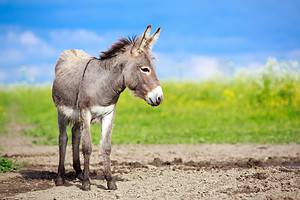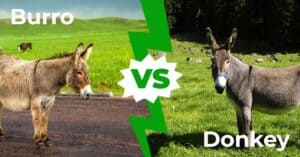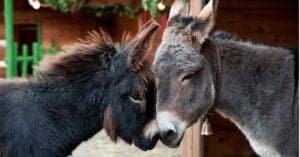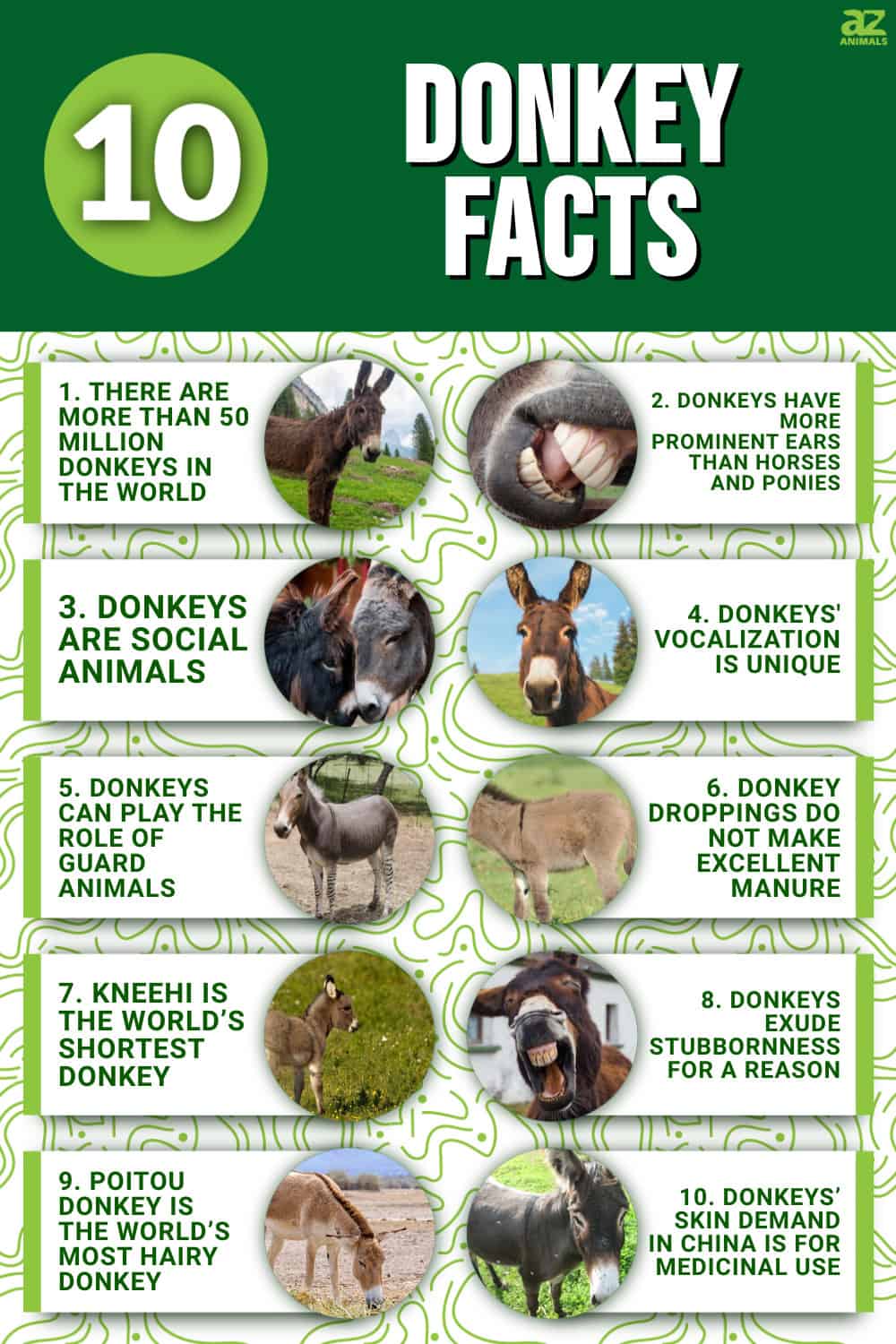
Also known as an ass or burrow, a donkey is a hoofed animal that belongs to the Equidae family. Donkeys have a long and varied history with roots in Africa and Asia. About 6000 years ago, during the predynastic period of Egypt, the wild African ass (E. africanus) in northeastern Africa was bred to come up with the modern domestic donkey (Equus asinus).
The wild ass subspecies: the Somali ass (E. africanus somaliensis) and the Nubian ass (Equs africanus africanus), are thought to have played a role in the development of the modern donkey. However, mtDNA results suggest that the Nubian is the only wild species genetically contributing to the current domesticated donkey. These two wild asses still exist but are on the IUCN Red List as critically endangered species.
Domestic donkeys are mainly used in many countries as pack animals. You have probably heard about its famed obstinance, but do you know any reason behind it? How about its unique vocalization or its large ears? Read on to find more incredible facts about this underappreciated animal.
1. There are more than 50 million donkeys in the world
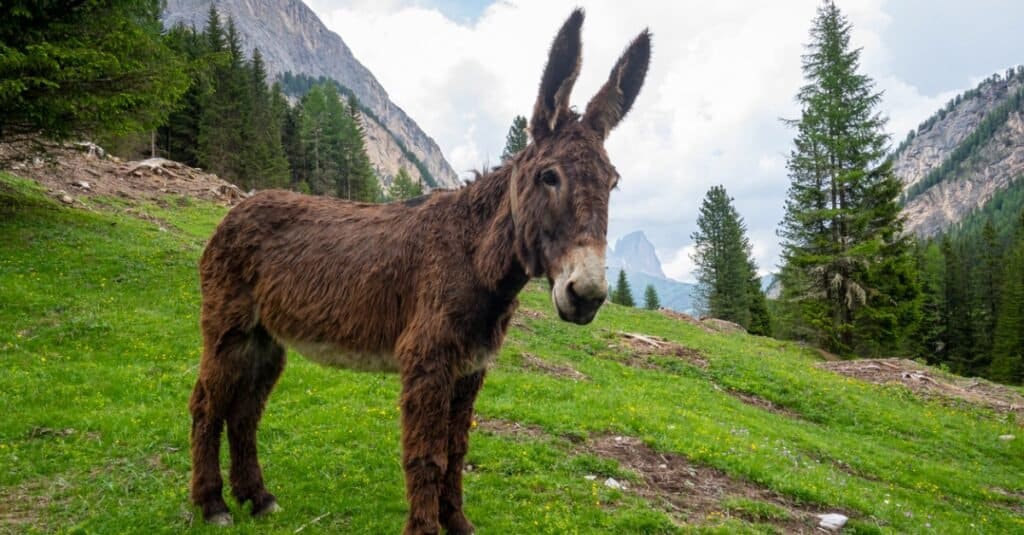
A few donkeys are kept for breeding or as pets in developing countries.
©iStock.com/Jacek Jacobi
According to the National Library of Science, Ethiopia boasts the largest donkey population, with over 8 million donkeys by 2018. The beast of burden population is dominant in Africa, where most countries use it as a pack animal and as a source of milk and meat. A few donkeys are kept for breeding or as pets in developing countries.
2. Donkeys have more prominent ears than horses and ponies
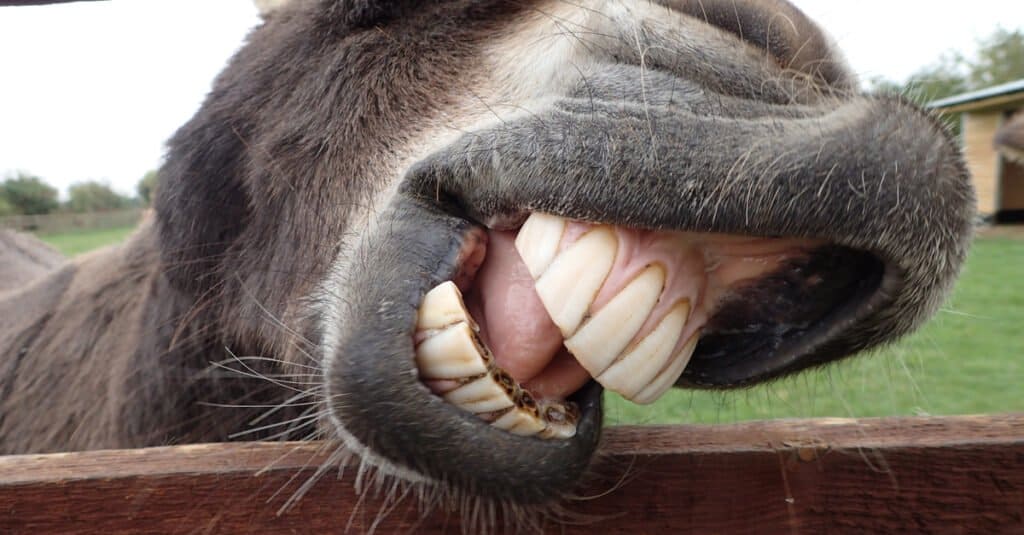
Donkeys evolved from hot climates where food was often scarce in their environment.
©alan payne/Shutterstock.com
Donkeys evolved from hot climates where food was often scarce in their environment. So, they go separate ways to find food, and their big ears help them hear each other from far away. The donkey’s big ears have a lot of surface area, which helps move heat away from the donkey’s body and keep it cool.
3. Donkeys are social animals
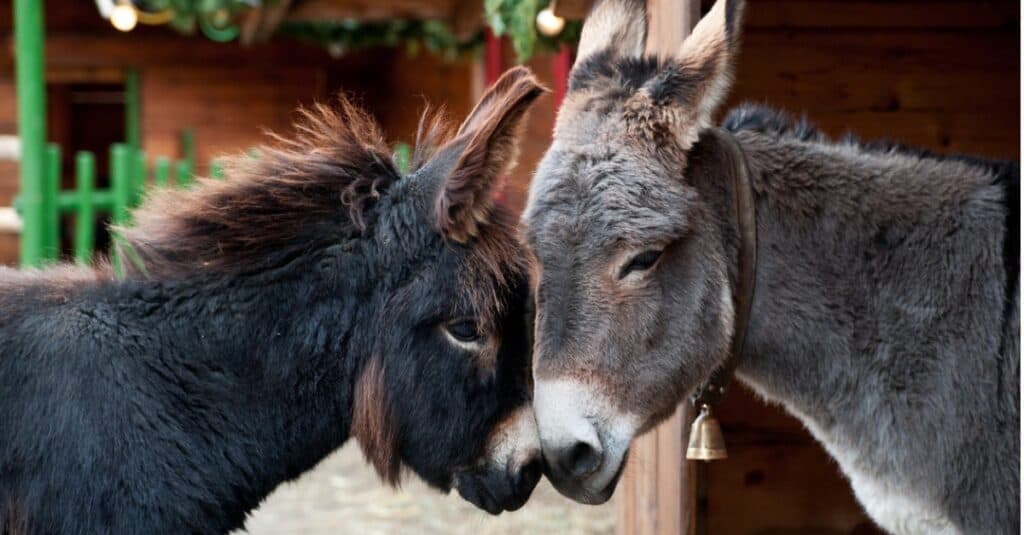
Domestic donkeys prefer to be in the company of other animals rather than being alone.
©iStock.com/tepic
In their natural habitat, donkeys live in herds with lifelong and deep bonds. Pair-bonding is motivated by sexual needs and kinship. The pair bonds or social relationships between donkeys depend on each party’s ability to pick their partners using cues innate to themselves. Domestic donkeys prefer to be in the company of other animals rather than being alone.
4. Donkeys’ vocalization is unique
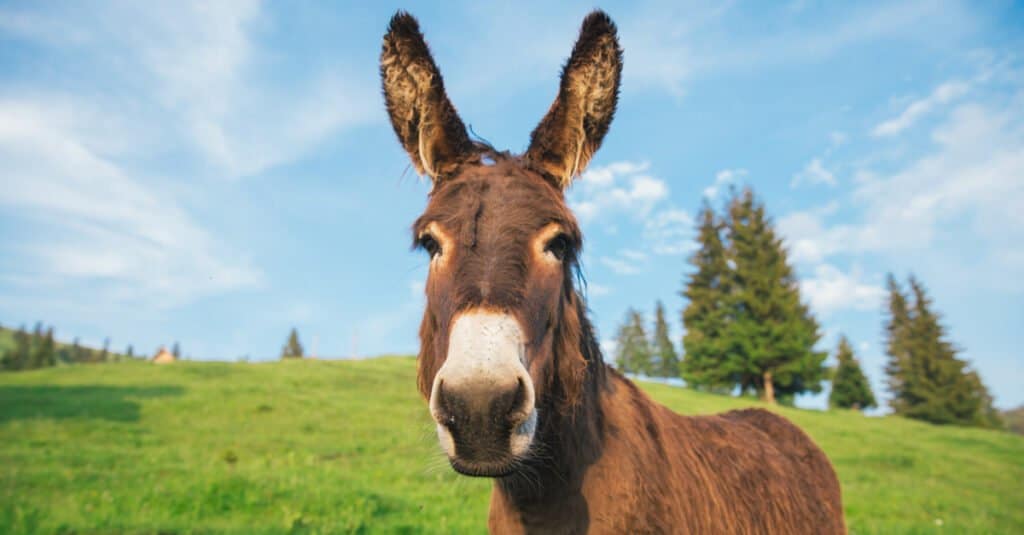
The donkey gets its association with Christmas because of its ties to the Christian faith.
©Angyalosi Beata/Shutterstock.com
The hee-haw sound that donkeys make is called a bray. Donkeys bray as a way of communicating with other donkeys, to voice their feelings of loneliness, discomfort, or distress. They also bray when hungry or warn others of impending danger. Male donkeys bray more than their female counterparts since they are more vocal. Donkeys bray loudly in deserts to maintain contact with other donkeys over vast spaces.
5. Donkeys can play the role of guard animals
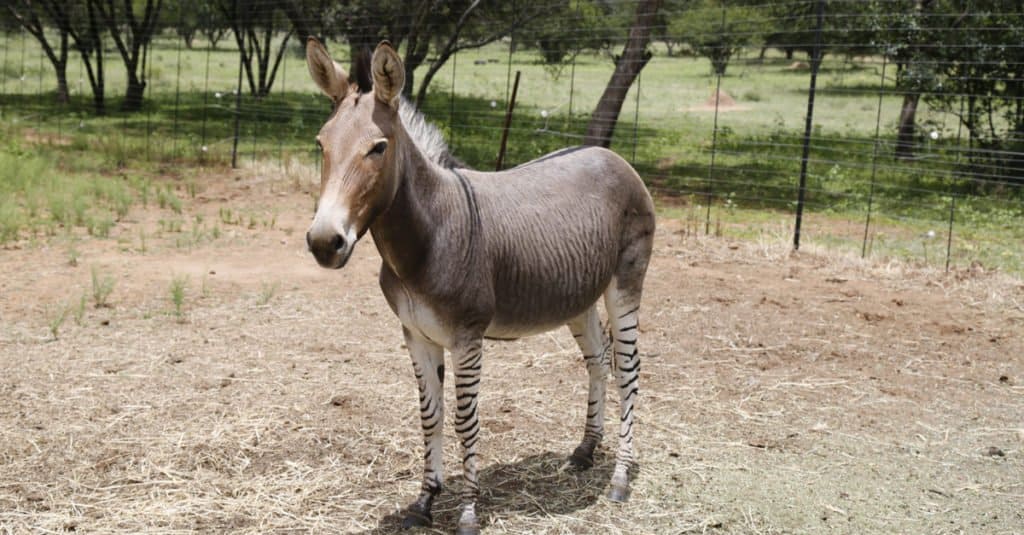
Donkeys are territorial and aggressive towards threatening predators. There are also different species of donkey including hybrids.
©Shllabadibum Bubidibam/Shutterstock.com
Donkeys are territorial and aggressive towards threatening predators. Sheep farmers in the United States, Canada, and Australia use donkeys as guard animals. They aren’t a threat to humans.
6. Donkey droppings do not make excellent manure
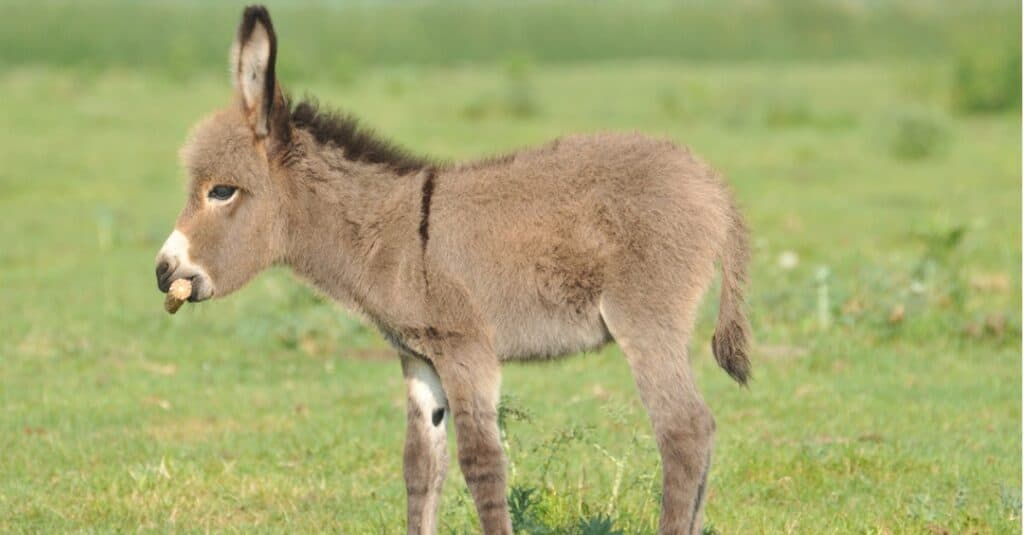
It takes between three and four months for donkey manure to decompose.
©iStock.com/predrag1
Donkeys are browsers and graze for long hours during the day, eating almost any plant on sight. Their diet consists of high-fiber plant material. Their digestive systems efficiently metabolize their food and absorb the maximum nutrients before passing the waste.
Composting with donkey manure is essentially the same as composting with horse manure. As a result, their droppings have lower nitrogen levels and lots of nutrients. It also takes between three and four months for donkey manure to decompose.
7. KneeHi is the world’s shortest donkey
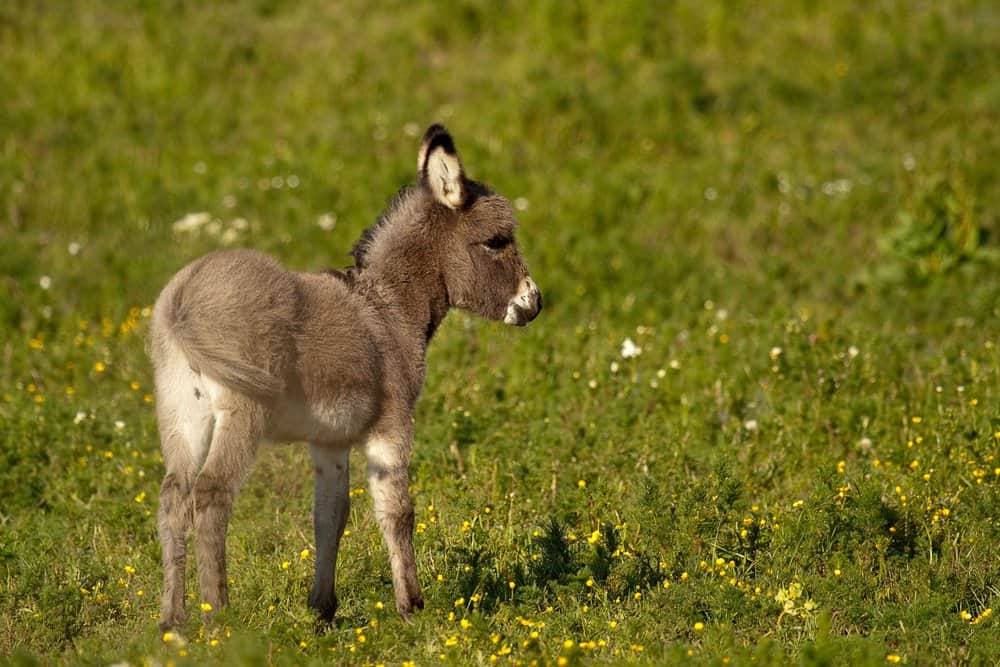
KneeHi is a registered miniature Mediterranean donkey at 24.29 inches tall.
©MichaelHansen/Shutterstock.com
KneeHi is a registered miniature Mediterranean donkey at 24.29 inches (about 64 cm) tall, measured to the top of the withers. As certified by Guinness World Records, KneeHi is the shortest donkey. KneeHi lives at Best Friends Farm in Gainesville, Florida, and is owned by Jim and Frankie Lee.
8. Donkeys exude stubbornness for a reason
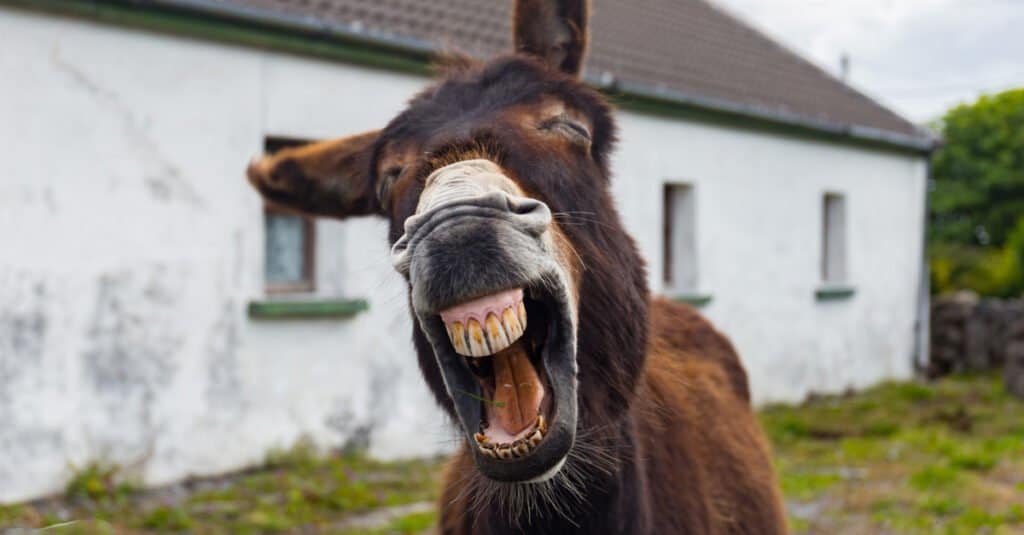
Donkeys have a reputation for standing their ground.
©ElDuderino/Shutterstock.com
Donkeys have a reputation for standing their ground and are not easily startled like their counterparts, horses. This natural phenomenon birthed the saying “as stubborn as a mule.” It is worth noting, though, that this behavior is motivated by their instinctive nature to self-preserve. In the face of danger, they stay fixed in a position to assess the situation and decide their next move.
9. Poitou donkey is the world’s most hairy donkey
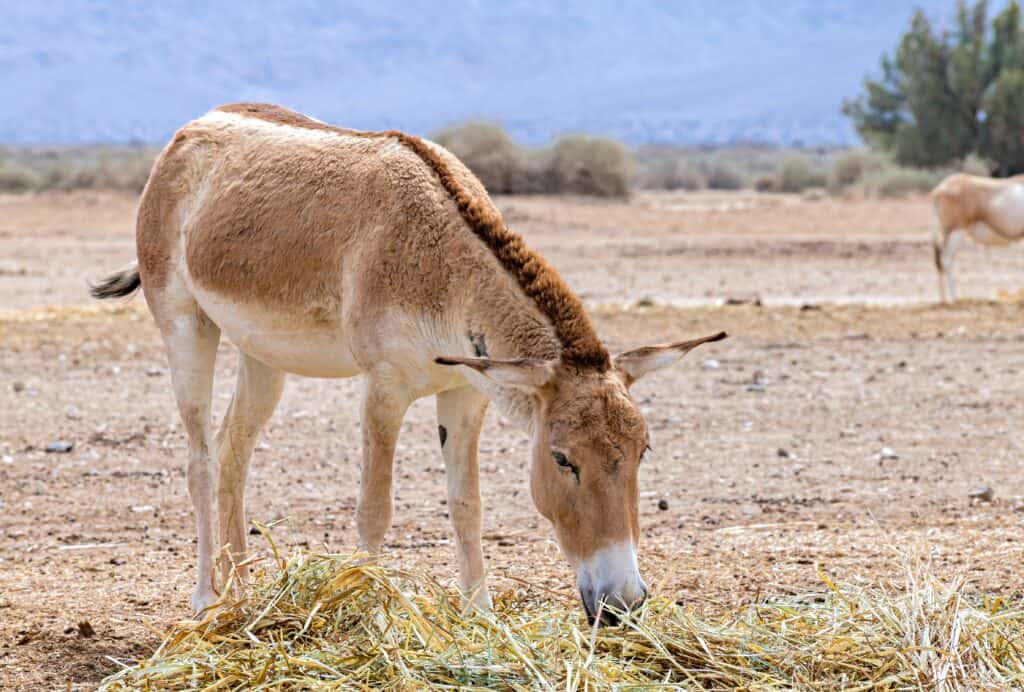
Many ancient literary works mention onagers. They were domesticated thousands of years ago and originally used as beasts of burden.
©Sergei25/Shutterstock.com
The Poitou donkey is named after the west-central region of France where the breed is native; the Poitou donkey is super hairy and relatively large. Its body is covered in up to half-foot-long hair, and it has larger feet than other donkeys. Poitou donkeys are mainly used in the breeding of mules. It is a common belief that a mule descended from a Mulassiere and a Poitou makes the best mule for work.
10. Donkeys’ skin demand in China is for medicinal use
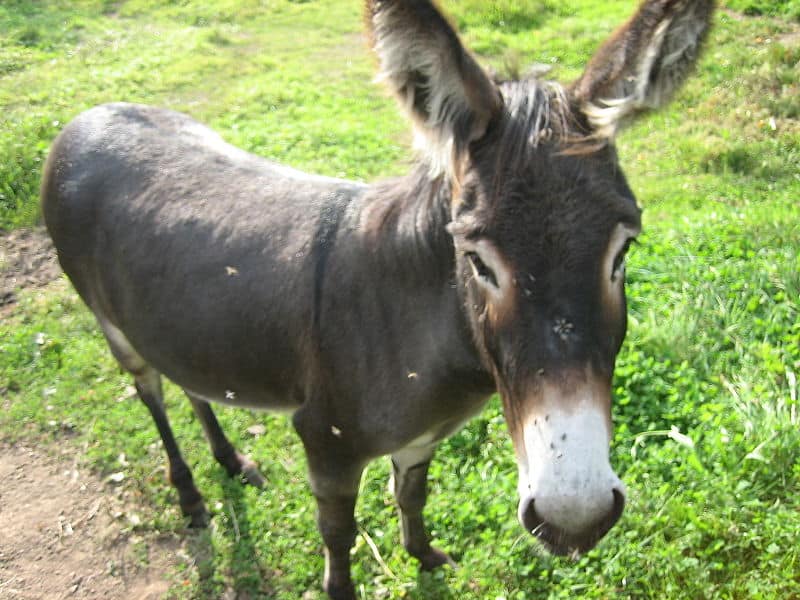
Donkey hides are used in China to make a traditional medicine called ejiao.
Donkey hides are used in China to make a traditional medicine called ejiao, also known as colla corii asini. Collagen extracted from donkey skin is mixed with herbs and other ingredients to make beauty products, pills, and other consumables believed to have healing power.
Ejiao is believed to cure premature aging, circulatory problems, and miscarriages. The heightened demand for ejiao fueled the demand for donkey hides in China. This has led to the decimation of the donkey population in China and other countries exporting the hides to China.
The Ejiao trade has encouraged unsustainable and illegal trade in donkeys and their cruel treatment. Most communities have lost their means of livelihood and experienced ecosystem imbalances owing to the illegal donkey trade. As a result, some countries, like Ghana, Nigeria, and Kenya, have banned the export of donkeys or donkey products.
Several governmental and non-governmental organizations, such as the donkey sanctuary in the UK, are championing the regulation of the donkey trade. They aim to reduce the cruelty donkeys face and preserve the donkey population. According to the animal journal, most breeds of donkeys are vulnerable to extinction owing to agricultural mechanization.
The photo featured at the top of this post is © iStock.com/predrag1
Thank you for reading! Have some feedback for us? Contact the AZ Animals editorial team.



